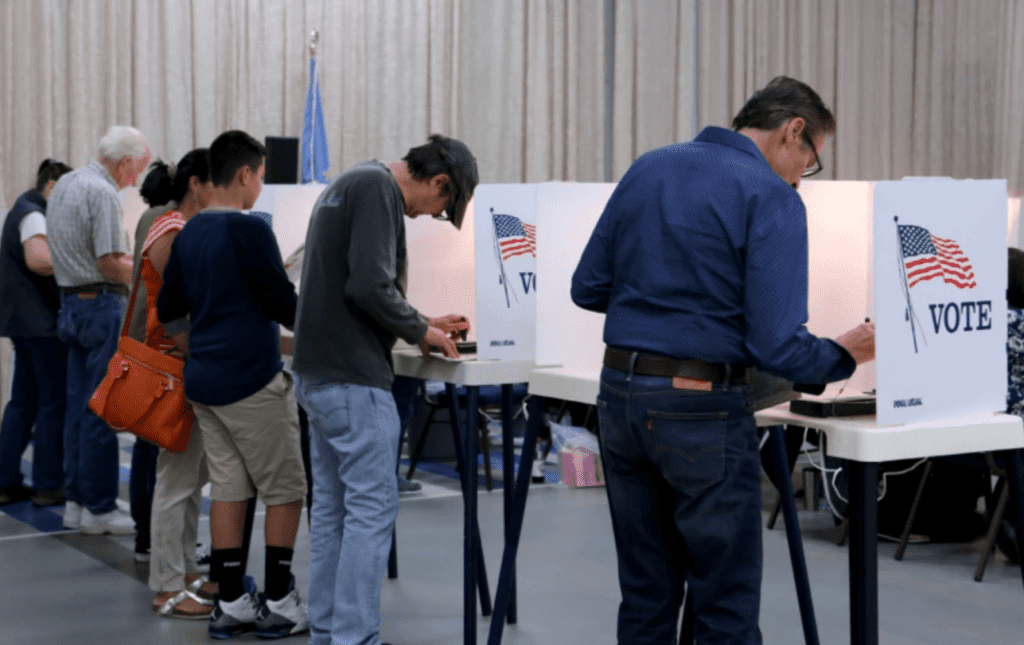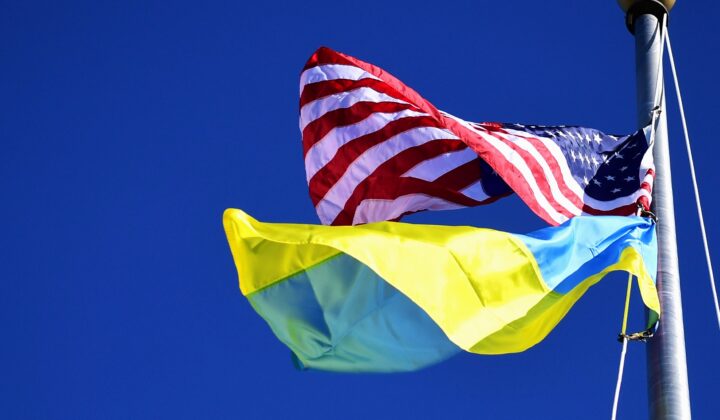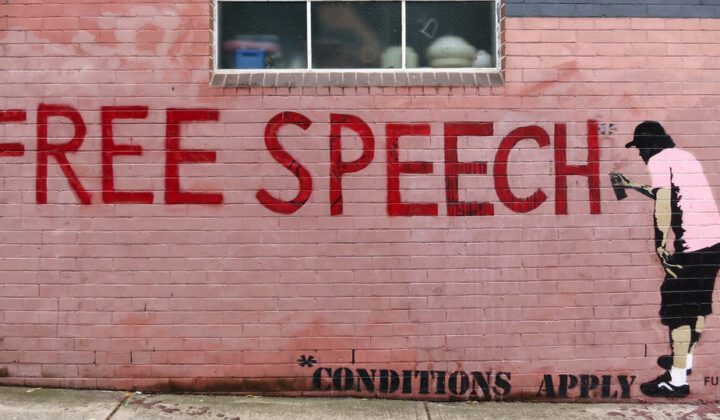What can you do to help with Election Day 2020?
The huge surge in mail-in ballots, major delays at the USPS, the continuing pandemic, and a President sowing doubt and discord about the electoral process, all individually would have added plenty of strain on our November election. But combined, these emergencies have left many Americans justifiably anxious about our country’s ability to conduct our upcoming elections fairly. However, despite this perfect storm, there are concrete ways for American citizens to get involved and do their part to protect the right to vote in the upcoming election.
Work the Polls. Many jurisdictions are experiencing serious shortages in poll worker applications given the increased health risks at polling stations due to COVID-19 and the fact that typical poll workers skew older. And fewer workers mean longer lines for voters and the possibility that some polling stations might be shut down completely. If you are young, healthy, and willing to take the risk, volunteering at the polls this year is an admirable way to help protect your fellow citizens’ right to vote. Eligibility varies by state so check to ensure you qualify before applying.
Help Register Voters. Voting is the lifeblood of American democracy, but it is also notoriously complicated this year. Well before the November 3rd election, it all starts with the first act of registering, a process that already scares away potential voters; do your part to demystify the process by volunteering to assist others throughout their voter registration. It is most effective to reach out to individuals that you personally know rather than total strangers, so click here to learn about Rock the Vote’s organizational plan to increase voter turn-out.
If you’re a lawyer, you can answer voter questions at the polls or via designated hotlines. Election Protection trains lawyers to help with these processes that have become more complex due to the pandemic. This organization also distributes information to voters with updated instructions for voting early, by mail, or as an absentee in each state. Considering the astounding number of ballots that are thrown out due to minor mistakes, helping inform voters during this process is essential.
Don’t spread misinformation: Be the most knowledgeable person you know about voting rights and election information. Actively counter disinformation that you see online or in person. Here is a good resource to stay up-to-date on relevant court cases. Vote.org has a suite of important registration/election information. And if any of your friends are wondering if they will have enough time to vote-by-mail in their state, pass along this essential resource.
___
Trump Campaign Looking for Ways to “Bypass Election Results”
An early online release of an article set to appear in the November issue of The Atlantic reveals that the Trump campaign has been looking into ways to “bypass election results and appoint loyal electors in battleground states where Republicans hold the legislative majority.” In other words, even if President Trump loses the popular vote in these states, Republican legislatures could send electors to DC to vote for Trump anyway, claiming mass voter fraud. This, a Trump campaign legal advisor said, would be framed as “protecting the people’s will.”
The Atlantic asked the Trump campaign’s deputy national press secretary about this scheme. She demurred without denying, saying, “It’s outrageous that President Trump and his team are being villainized for upholding the rule of law and transparently fighting for a free and fair election. The mainstream media are giving the Democrats a free pass for their attempts to completely uproot the system and throw our election into chaos.” Although a Brennan Center report concluded there have only been 31 fraudulent ballots cast out of 1 billion since 2004, President Trump and his campaign have repeatedly and systematically attacked the integrity of the election, particularly voting by mail. And most recently, President Trump refused to commit to a peaceful transition of power.
1. Will the Trump Campaign’s plans come to pass?
Unlikely. First, the scheme is of questionable legality. It’s true that Article II of the Constitution does not explicitly say how states choose their electors, and that Bush v. Gore upheld the State’s right to “take back the power to appoint electors.” Nonetheless, experts have cast doubt on the Trump campaign’s plan. Richard Pildes, a law professor at New York University said, “There’s no reason to think there would be any appropriate basis for doing this. It’s not at all clear that the legal power to do it even exists.” Rich Hasen, a political science and law professor at UC Irvine also threw cold water on such speculation, tweeting, “states have ALREADY started voting, and that means state legislatures have already chosen the “manner” for choosing presidential electors this season. I don’t see how state legislators take it back now legally.” Additionally, The National Task Force on Election Crises authored a paper which suggests that a scheme such as the one proposed by the Trump campaign would violate federal law.
Furthermore, while the chairwoman of the Senate Republican Campaign Committee in Pennsylvania did not deny anything when asked about sending “loyal electors”, officials in Wisconsin and North Carolina denied ever having discussed it, and the Florida GOP Chairman said, “we would never do that.”
2. What will Election Day look like this year?
Well, first of all, it’s more likely to resemble an election week or month.
According to the Electoral Count Act, states have 35 days to finish counting and settle any lawsuits (of which there are already many) related to the vote. This year, the Electoral College electors must be selected by December 8th.
Typically, these time frames are not an issue because the winner of the presidential election is determined on Election Night, but this year will be different. An unprecedented number of people voting by mail are thought to be Democratic voters. As a result, it’s possible that the map could look very red on election night, before mail-in ballots in most states are fully counted.
This changing terrain allows political leaders to stoke confusion and question the legitimacy of the election. Although the Trump campaign’s electoral scheme is unlikely to come to pass, the extended time frame for this election will require all of us to remain patient and vigilant during this time.
___
Politicization of DOJ Reaches New Heights in PA Voter Fraud Case
In a Fox News interview on Thursday morning, September 24th, President Trump claimed that election officials had been throwing away mail-in Trump ballots. Without any specifics, it was unclear whether the President had any evidence for his claim.
Soon afterward, the Department of Justice (DOJ) stepped in, apparently to clarify and support the President’s comments, by announcing an ongoing investigation into a county elections office in Pennsylvania after nine absentee ballots had been accidentally discarded. A recently hired contractor had mistaken the ballots for ballot applications and, after opening them, thrown them away. The ballots were later counted and the contractor was fired.
Attorney General (AG) William Barr had personally briefed the President on the investigation before his radio interview, and informed him that several of the ballots had been Trump votes, so that the President could use an ongoing DOJ investigation as a talking point in his re-election campaign.
1. What’s wrong with how the DOJ handled this case?
First, the DOJ broke longstanding practice and precedent by first disclosing the existence of a criminal investigation and then publicizing details of it. According to former federal prosecutor Elie Honig, “DOJ never publicly confirms a criminal investigation, other than in extremely rare, emergency situations. It’s a written rule (in the Justice Manual).” Demonstrating one important reason why the DOJ has rules against this, in their haste to disclose the information, the President and DOJ made several mistakes. They claimed, at various points in time, that first six ballots, then eight ballots, then nine ballots had been Trump votes, before the DOJ finally clarified that the correct number was seven.
Second, since Watergate, the DOJ has tried to maintain its independence (with notable exceptions), shielding itself from the Oval Office so that it can carry out its mission unhindered by politics. And past administrations since Ford have largely respected this important norm. Unfortunately, this has clearly not been the case during the Trump Administration, which has seen a systematic campaign to politicize the DOJ, as we have covered in past newsletters.
2. How does this case play into attempts to delegitimize the election in Pennsylvania?
In addition to the President’s many attempts to delegitimize the upcoming election, controversial court rulings in Pennsylvania threaten to disenfranchise countless voters. In a microcosm of lawsuits playing out all across the country, the state parties in Pennsylvania have fought over who can vote and how. On September 17th, the state Supreme Court ruled that ‘naked ballots’––mail-in votes returned without a second, secrecy envelope––could not be counted. There is no concern over voter fraud here: the secrecy envelope exists so that election officials cannot identify for whom individuals voted.
But those same ‘naked ballots’ were considered legitimate in June, during the state’s primary elections. Election officials estimate that up to 100,000 voters may be disenfranchised by this abrupt ruling on a technicality.
In addition, the Pennsylvania Republican Party is bringing a case to the US Supreme Court to shut down all vote-counting operations after election night, despite concerns that this would disenfranchise countless absentee voters, whose votes cannot be expected to be counted on time.
Finally, President Trump erroneously claimed at Tuesday night’s debate that election officials were barring his campaign’s poll watchers in Philadelphia as part of a conspiracy to rig the election. Poll watchers designated by a campaign may, after receiving certification from their county elections office, observe polling places on election day. However, they cannot, as the Trump supporter in question did, try to enter the offices of elections officials to watch individuals fill out their early-voting ballots.





